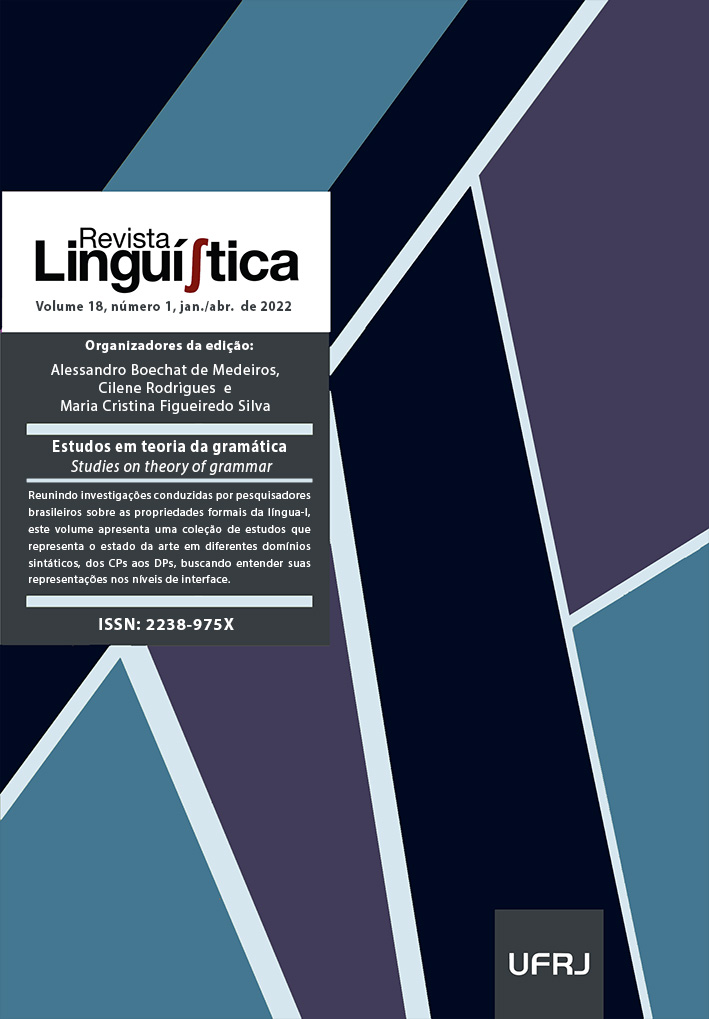Prepositions in Brazilian Portuguese: on the rise of a novel system
DOI:
https://doi.org/10.31513/linguistica.2022.v18n1a55439Keywords:
prepositions, oblique case, structural case, locativesAbstract
The study examines the prepositional system of Brazilian Portuguese, considering the loss of the dative preposition a (to) in constructions with dative arguments and differential object marking (DOM), as well as in unaccusatives predicates with directional motion verbs. It is argued that the occurrence of para (to) in both ditransitive predicates and predicates with motion verbs as well as the convergence of the preposition em (in) in the grammatical encoding of both innessive and allative interpretation point to their morphosyntactic identity in the relevant contexts. This hypothesis stems on Manzini; Franco’s (2016) unified analysis of dative as well as DOM constructions, in which the relevant argument is licensed in the projection of a prepositional head that introduces an inclusiveness/ possession relation with either the theme argument in ditransitive predicates or the embedded nominal layer in the internal structure of the event in monotransitive predicates, which amounts to the syntactic expression of oblique case. This analysis is extended to unaccusative predicates with motion verbs, in which the spatial preposition introduces a relation between the theme argument and the locative argument in the internal structure of the predicate.
Downloads
Published
Issue
Section
License
Authors who publish in the Revista Linguí∫tica agree with the following terms:
The authors maintain their rights, ceding to the journal the right to first publication of the article, simultaneously submitted to a Creative Commons license permitting the sharing with third-parties of published content as long as it mentions the author and its first publication in the Revista Linguí∫tica.
Authors may enter into additional agreements for the non-exclusive distribution of their published work (for example, posting in online institutional or non-profit repositories, or book chapters) so long as they acknowledge its initial publication in the Revista Linguí∫tica.

The journal Revista Linguí∫tica is published by the Post-Graduate program in Linguistics of UFRJ and employs a Creative Commons - Attribution-NonCommercial 4.0 International (CC-BY-NC).









